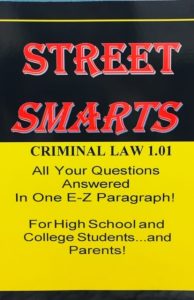100 ‘most asked ‘ questions
DO I HAVE TO TELL THEM WHAT I KNOW?
No.
The only time you have to speak is if you are ordered to do so by a judge, in court, with your attorney present.
Once you begin to tell the police what you know you expose yourself to criminal charges of obstruction of justice, impeding a police investigation, filing a false police report, perjury, and a host of other criminal charges.
By remaining silent you are not exposing yourself to criminal liability for misstating or mistaking what you know from what you think you know.
You need to speak with a lawyer. You can cooperate in an investigation later if you want.
 South Florida Criminal Defense Lawyer Blog
South Florida Criminal Defense Lawyer Blog




